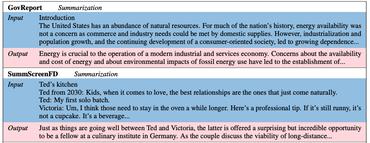Primal-Attention: Self-attention through Asymmetric Kernel SVD in Primal Representation
Recently, a new line of works has emerged to understand and improve self-attention in Transformers by treating it as a kernel machine. However, existing works apply the methods for symmetric kernels to the asymmetric self-attention, resulting in a nontrivial gap between the analytical understanding and numerical implementation. In this paper, we provide a new perspective to represent and optimize self-attention through asymmetric Kernel Singular Value Decomposition (KSVD), which is also motivated by the low-rank property of self-attention normally observed in deep layers. Through asymmetric KSVD, $i$) a primal-dual representation of self-attention is formulated, where the optimization objective is cast to maximize the projection variances in the attention outputs; $ii$) a novel attention mechanism, i.e., Primal-Attention, is proposed via the primal representation of KSVD, avoiding explicit computation of the kernel matrix in the dual; $iii$) with KKT conditions, we prove that the stationary solution to the KSVD optimization in Primal-Attention yields a zero-value objective. In this manner, KSVD optimization can be implemented by simply minimizing a regularization loss, so that low-rank property is promoted without extra decomposition. Numerical experiments show state-of-the-art performance of our Primal-Attention with improved efficiency. Moreover, we demonstrate that the deployed KSVD optimization regularizes Primal-Attention with a sharper singular value decay than that of the canonical self-attention, further verifying the great potential of our method. To the best of our knowledge, this is the first work that provides a primal-dual representation for the asymmetric kernel in self-attention and successfully applies it to modeling and optimization.
PDF Abstract NeurIPS 2023 PDF NeurIPS 2023 Abstract









 ImageNet
ImageNet
 WikiText-2
WikiText-2
 WikiText-103
WikiText-103
 D4RL
D4RL
 ListOps
ListOps
